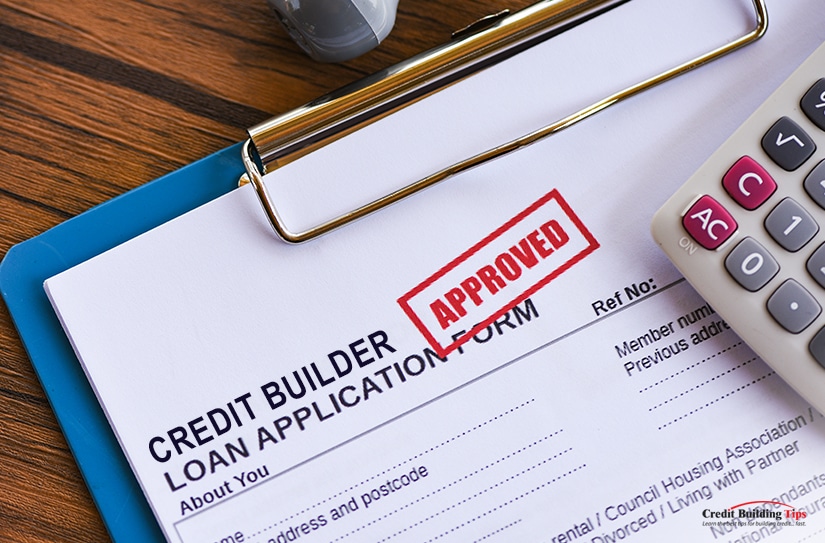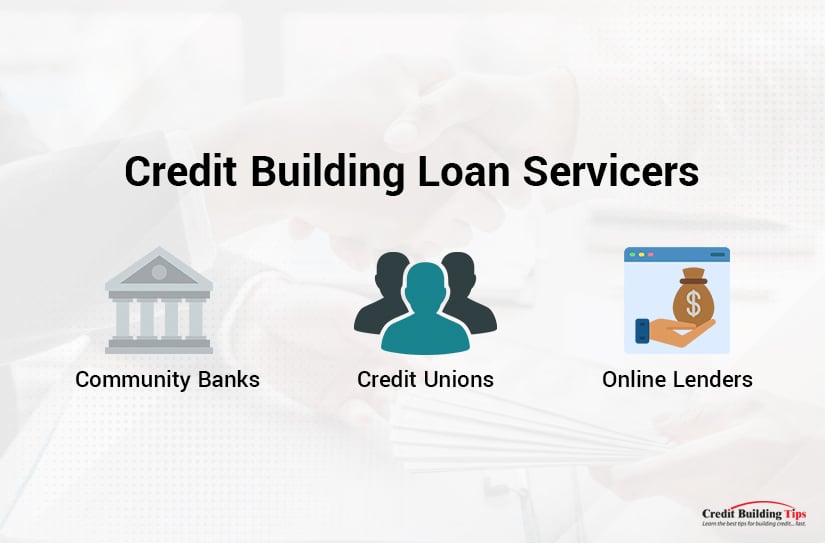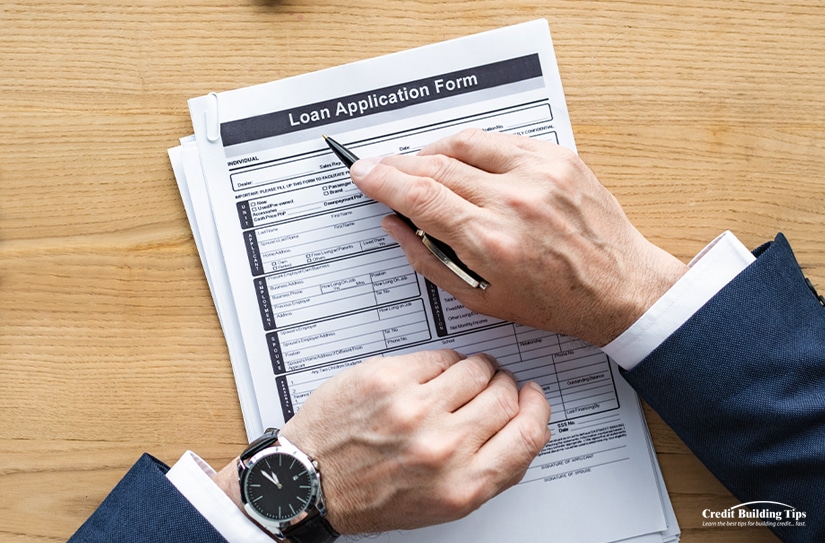Sometimes, building your credit seems like an impossible task. Does this sound familiar?
How do you get a loan to pay off to build your credit if you need good credit to get a loan in the first place?
 Luckily, many credit builder loans are structured in such a way that they're attainable if you have bad credit or even no credit at all.
Luckily, many credit builder loans are structured in such a way that they're attainable if you have bad credit or even no credit at all.To understand why, you have to know how they work.
So, let's dig in and discuss how they work and how to get them.
Credit builder loans are akin to normal loans but with a twist.
When you take out a normal loan, you are given money and expected to pay it back over time. The most common uses of loans like this are to pay for purchases much larger than you can normally afford, like a car or a house.
Banks take on a lot of risk for these loans. If you end up not paying back the loan, the bank is the one losing the money. That's why they often have liens or other collateral on record, so if you stop paying your mortgage, you lose the house. Your credit score exists as a way to measure how effectively you control and pay off your debt.
 Credit builder loans operate differently. When you take out a credit builder loan, you don't get the money. Instead, the money is put into a bank-controlled account, often a savings account or a Certificate of Deposit (CD) with some small interest rate attached.
Credit builder loans operate differently. When you take out a credit builder loan, you don't get the money. Instead, the money is put into a bank-controlled account, often a savings account or a Certificate of Deposit (CD) with some small interest rate attached.To use a very simple example, say you take out a $1,200, one-year credit builder loan at zero percent interest. That $1,200 is put into a savings account, and you are asked to pay $100 per month to pay off the loan. Each month, you make a $100 payment; by the end of the year, you're down $1,200. When you finish paying off the loan, the savings account is cashed out and given to you; you get your $1,200 back.
Make sense?

There are a handful of different factors that adjust how this situation works, but that's the core idea. Build on it with:
A credit building loan is, essentially, a secured loan. Since the money isn't given to you until you've paid it back, you're the one who takes on the risk, not the bank. If you stop paying, well, the money is still there in a bank-owned account, and they can liquidate it for themselves.
Different credit building loans have different terms and restrictions that may adjust how much they can keep versus how much they give back, if anything, and what they do with interest, fees, and other details. Always make sure to read the fine print on any loan you consider taking out.
 One thing to note is that you can still be denied for a credit builder loan, even when bad credit isn't a problem. Most of these loan providers will still check the ChexSystems report, and if you've had a lot of bounced checks in the past, it can lead to a denial of loan.
One thing to note is that you can still be denied for a credit builder loan, even when bad credit isn't a problem. Most of these loan providers will still check the ChexSystems report, and if you've had a lot of bounced checks in the past, it can lead to a denial of loan.Credit building loans are not standard loans and are not generally offered by most major banks. Instead, you usually have to turn to other organizations to get them.

There are generally three types of institutions offering credit builder loans.
There are dozens of organizations that offer credit builder loans with no credit check. They can do this because, as mentioned above, the credit builder loan is not a risk to the bank. Since you assume the risk of the loan, it doesn't matter what your credit is; the bank can "lend" to you anyway.
Examples of credit building loan servicers include the following. Note, however, that we make no judgment as to the quality of these banks, credit unions, and online lenders; we simply mention that they exist.
This is just a representative sample of financial institutions offering credit builder loans. Their terms, qualifications, and requirements may vary.
Credit builder loans put the risk on you, so you need to make sure any loan you take out is one you can afford to pay back. Luckily, most credit builder loans have relatively low balances and good terms because it defeats the purpose if people can't handle paying them off.
Still, you need to take a close look at your financial situation and determine how much you can afford to reliably pay every month. Taking on a loan that asks you to pay more than that amount is a significant risk because a credit builder loan only helps you if you maintain successful payments. If you fall behind, default, or otherwise cannot pay off the loan, it backfires and leaves you worse off than you started.
Most credit builder loan programs are 1-2 years, though some will go up to ten years. We highly recommend avoiding those; short-term loans are much easier to handle, and it's much harder to predict your financial position a decade ahead of time.
Ideally, you will find a credit builder loan with 0% interest. This isn't always possible, though. APRs generally range from 4-5% on the low end to 25% on the high end.

Many credit builder loan servicers will also require a loan that has a particular minimum payment. This is usually somewhere in the $15 to $25 range, though some can be as much as $50. (Yes, our $100 per month example is higher than most actual credit builder loans.)
You will also want to take a look at any fees associated with the loan. Many credit builder loans will have one-time administrative fees, usually between $5 and $25, though some have additional monthly fees. It's usually best to avoid the latter if you can qualify for the former.
All in all, this will give you an idea of the capacity of the loan you can handle paying regularly. Then, you can look for credit builder loan programs that offer terms that match what you can pay.
 Remember: Bigger isn't necessarily better! A larger loan takes up more of your credit utilization and may hurt you somewhat in the short term while it builds credit in the long run. Take a loan you can comfortably pay off, not the biggest loan you may be able to pay off.
Remember: Bigger isn't necessarily better! A larger loan takes up more of your credit utilization and may hurt you somewhat in the short term while it builds credit in the long run. Take a loan you can comfortably pay off, not the biggest loan you may be able to pay off.Once you've chosen a loan, apply! Some lenders may have certain requirements to qualify, like minimum annual income, but most will not perform a credit check specifically because they cater to people with poor credit, so it doesn't matter.
Once you apply and are approved, all that's really left to do is make your regular monthly payments. If you have enough leeway to set money aside specifically for paying for the loan, do so. Otherwise, just make sure you have enough to pay it off each month. Since your loans should only last 12-24 months and usually have low numbers attached, this shouldn't be too hard of a burden.

As you successfully pay for your loan, your payments will be reported to the credit bureaus. This will have a slow impact on growing your credit score, often by 10-30 points, which will continue to grow as you pay off your loan. By the time the loan is done and paid off, many people with low credit see a jump of 60 points or so. Obviously, the exact amount that your credit score can increase will depend on your specific financial situation.
When you finish paying off your loan and close out the account, the balance of the loan will be returned to you. This is usually something less than the total value of the loan due to fees, interest, and so on. For example, a $1,200 loan will likely return something like $1,050 to you when all is said and done.
While this may feel like a windfall, especially if you're used to operating on thin, paycheck-to-paycheck margins, it's important to remember that this money should be handled responsibly. Whether it goes towards bills, paying off other debts, or is rolled into another credit builder loan, ideally, handling your money responsibly is part of growing your credit.

Additionally, it can be a good idea to check your credit score a few days or weeks after you finished paying off your loan. You are always able to check your credit score and can check your credit report for free once per year; doing so can show you that your payments were correctly processed, no errors have occurred, and that your credit score has risen accordingly.
As always, if you see any errors on your credit report, dispute them. It's hard enough maintaining a proper credit score without having misreporting or errors dragging you down.
Depending on your current financial situation, yes, it most certainly can be.
Credit builder loans are not without risk. If you take on more of a loan than you can reliably pay off, missed payments can hurt your credit score, eliminating the benefit you would be getting from the loan.

Additionally, if you have existing debt on credit cards or other loans, it's better to put your money towards paying them off rather than taking on another form of debt. Adding more debt won't improve your score as much as paying off existing high-interest debt.
 All of that said, credit builder loans are often beneficial for those who have no credit or low credit and won't qualify for other forms of loan with favorable terms. They serve to help you reach a point where you can get to more favorable financial positions.
All of that said, credit builder loans are often beneficial for those who have no credit or low credit and won't qualify for other forms of loan with favorable terms. They serve to help you reach a point where you can get to more favorable financial positions.Do you have any questions or concerns about credit builder loans, or whether you should apply for one? If so, please feel free to reach out and contact us at any time! We'd be more than happy to answer any of your questions, and assist you on your credit building journey however we possibly can!